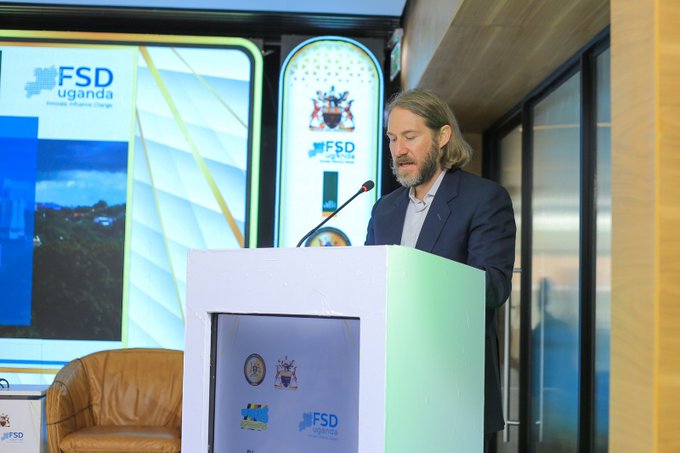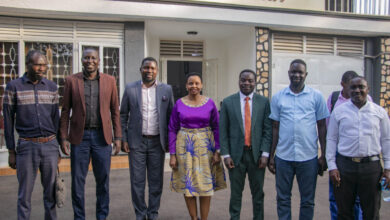Seven out of ten Ugandans rely on family, friends and loans to make ends meet-report reveals
Statistically, those who cut down on their regular expenses reduced from 27% in 2018 to 21% in 2023 while those who work more reduced from 23% to 12% and Ugandans who sold an item remain 8%.

The Finscope survey between 2018 and 2023 has revealed that seven out of every ten Ugandans were operating a personal budget deficit, stressing that they need more money than they are earning to cover their budget.
According to the report delivered by Bobby Berkowitz, a senior research specialist at FinMark Trust, more Ugandans are relying on their family and friends, personal savings, and borrowing to manage their budget deficits than was the case in 2018.
Delivering the report, Berkowitz revealed that most Ugandans are not managing their budgets well, whereby the percentage of those borrowing to manage their budget now stands at 16%, those using savings 20%, and others who ask families and friends for assistance are 20%.
This presented an increase from 11%, 14%, and 16% respectively from the years between 2018 and 2023.
“What I want to point out is that we have got those who cut down on their regular expenses, those who work more and do more work, and some who sold an item. In 2018, more Ugandans were reducing their spending and in 2023 instead what’s happening, is a shift to mobilizing funds by either relying on their family and friends, personal savings, or borrowing to manage their budget deficits,” he said.
Statistically, those who cut down on their regular expenses reduced from 27% in 2018 to 21% in 2023 while those who work more reduced from 23% to 12% and Ugandans who sold an item remain 8%.
Berkowitz explained that the main coping mechanisms for running out of money have shifted where instead of people cutting down on their regular expenses, they are just finding out other ways of meeting these regular expenses.
Furthermore, in the financial health findings part of the report, Berkowitz also noted that the proportion of Ugandans, who keep track of the money they receive and spend, has increased by 10 percent from the previous FinScope (2018).
Regarding financial resilience, the report also mentioned that most Ugandans are now more vulnerable to economic and social Shocks than in the past, whereby in 2023, nine out of every 10 Ugandans were faced with an unexpected event.
“This number more than tripled from 2023 than it was the case in 2018, indicating that more Ugandans are now more vulnerable to economic and social shocks. Sickness, agricultural risks, and theft were the predominant shocks Ugandans face,” Berkowitz said.
“There has been a massive increase. So, in 2018, 37% of Ugandan adults were facing unexpected expenses, and this is now up to 94%. So almost every Ugandan adult in 2023 was experiencing unexpected expenses which means that more Ugandans are vulnerable to economic and social shocks,” he added.
Berkowitz explained that this has a big implication for financial inclusion because if more people are dealing with shocks, there’s greater vulnerability that it’s going to impact individuals since they are under pressure.
And when people are under pressure, often they can get into a cycle of debt. So being able to deal with the second element of financial resilience is very important for authorities to notice in Uganda.
Highlighting more on the response of Ugandans to the causes of these shocks they are experiencing, Berkowitz enlightened that Ugandans are declining in borrowing.
“So in 2018, 42% of Ugandans who had experienced a financial shock were borrowing which now turned into 16% in 2023. Instead, there is a shift towards savings where a greater proportion of Ugandans (38%), are using savings in response to financial shocks,” he said.
Other findings in the survey report under financial health, disclosed that most Ugandans do not have concrete long-term financial plans. More than 7 out of every 10 Ugandans have no concrete long-term financial plans.
The survey also discovered that the number of Ugandans relying on their children for their future has greatly reduced than was the case in 2018, attributing the main drivers for lack of pension savings to low levels of awareness and unemployment.
Also, very few Ugandans according to the report are confident in their financial situation, where only 11% are satisfied with their financial situation and 60% are not confident in their financial plans for old age.






